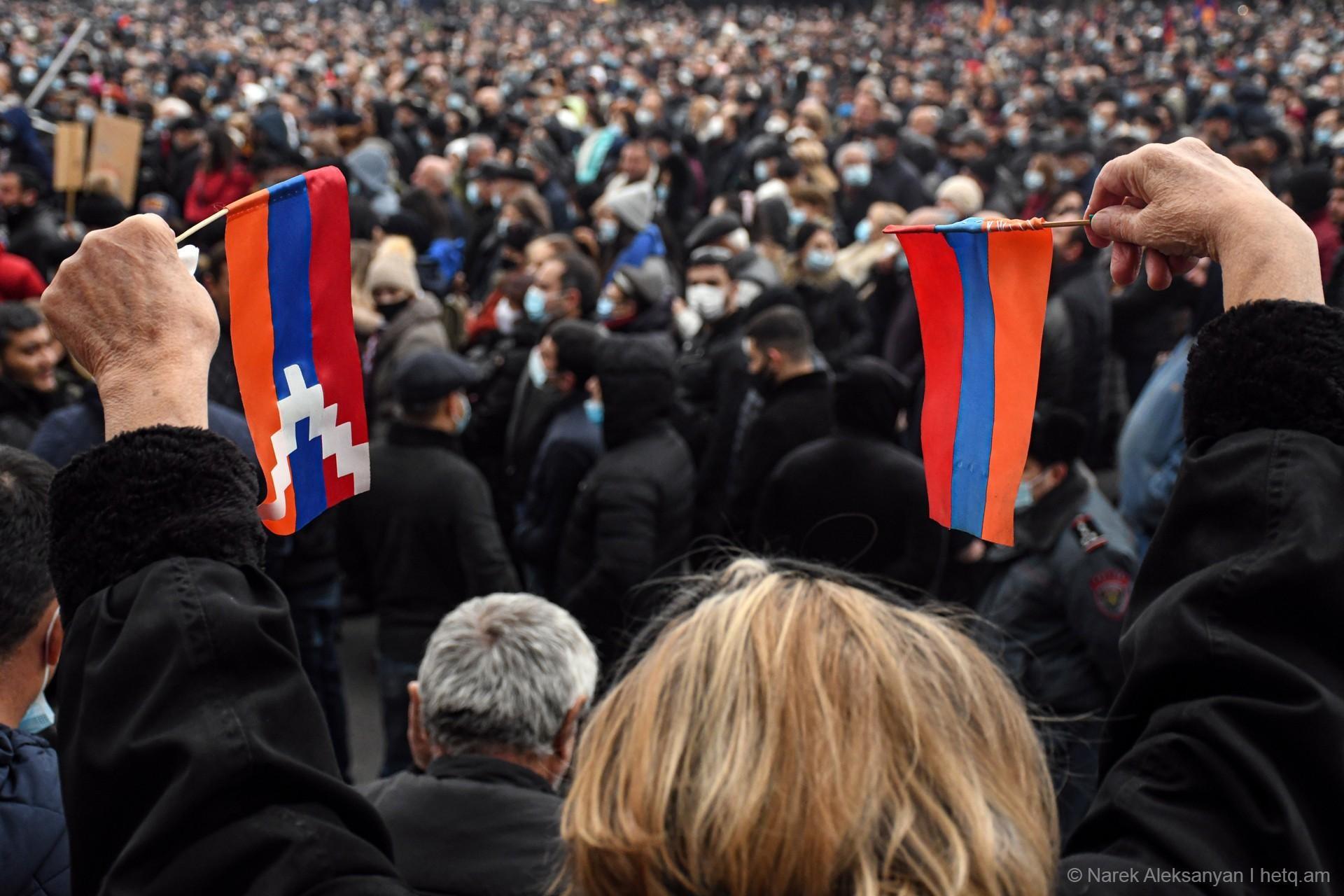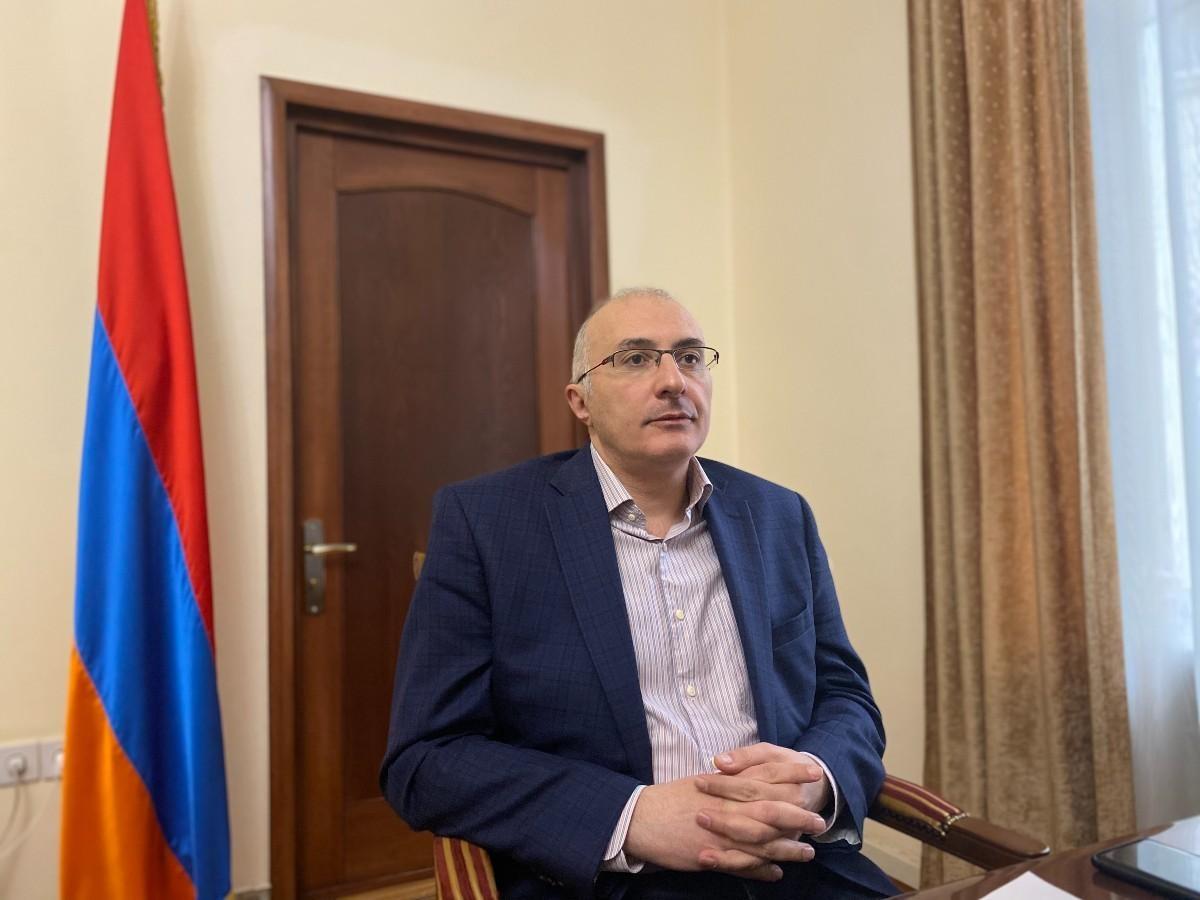
All-Armenian Fund Allocated 60% of the $170 Million Raised to the Armenian Government: Financial Report Still Not Published
When war broke out in Artsakh last year, Armenians around the world scrambled to aid their compatriots in the besieged “Second Armenian Republic”.
Various assistance initiatives were organized, but there was nothing on an organized pan-Armenian scale.
The Hayastan All-Armenian Fund (Fund), the global Armenian fund-raising organization, then launched the “We Are Our Borders. All for Artsakh” fund drive. Armenian celebrities and official urged Armenians to pool their resources and contribute to the Fund, claiming the monies would be directed to where it was needed the most.
By the end of the war, the Fund had raised some US$170 million, of which $65 million was raised in Armenia.
Fund Director Haykak Arshamyan, in one of his interviews at the time, said that "practically the entire adult population of Armenia was involved in this fundraiser.”
Those who donated are still asking for an accounting of where the money has gone.
In October 2020, the Fund's Board of Trustees decided to transfer some 60 % of the money raised (about $105 million) to the Government of Armenia. Donors in Armenia were informed about this on November 18, when the subject came up at a Q&A session in parliament.
A day later, fielding questions by reporters in Yerevan, Fund Director Haykak Arshamyan preferred not to talk about the amount of money donated to the Government.
“Let's not talk about the amount of money at this moment, until the fund is audited,” Arshamyan told reporters.
On December 18, 2012, Hetq sent a request to the Fund asking for the release of all financial inflows and outflows for the period from January 1 to December 15, 2020. We asked for information on what the money was spent on and what programs were implemented.
Not receiving an answer for more than a month, we called the Fund's media department. Ashot Barseghyan, a marketing and public relations consultant for the Fund, finally called and said there had been a mix-up at the office since several inquiries had been received from Hetq.
On January 29, we received a letter in which the Foundation gave the following answer to our question about providing the financial inflows and outflows.
"Given on the public’s need to know and the concerns raised about the Fund’s good name, the Fund, according to the Rule on Foundations, has invited an internationally recognized independent auditing firm to carry out an audit of the monies raised by the Fund in 2020, how efficiently they were used, and in terms of credibility. The results, once approved and certified by the Board of Trustees, will be made public.
To the question of what specific programs were implemented the Fund replied:
"All the proceeds of the ‘We Are Our Borders’ fundraiser are intended only for infrastructure damaged by the war, to pay for financial and healthcare expenses, and the provision of necessary assistance to the people of Artsakh."
We were forced to have another telephone conversation with Fund representative Ashot Barseghyan since the above reply failed to answer our questions. We asked for clear answers and a confirmation that they wouldn’t provide financial data if that were the case.
We received a second reply:
"Expenditures incurred by the Fund are subject to publication only after final approval by the Board of Trustees."
There was no answer as to when the audit will be carried out and the report published.
The Fund’s last, 2018, report was published in 2019 on azdarar.am, an official website for public announcements in Armenia. According to Article 39 of the RA Law on Foundations, foundations are required to publish a report on donations and expenditures no later than March 25 of each reporting year. This means that by the end of this month, the Fund must publish a detailed report on donations and expenditures. In case of non-publication or incomplete publication of the report within the established period, the Ministry of Justice shall apply the measures of accountability as provided by the RA Code on Administrative Offenses, up to filing a lawsuit with the court.
The Government of Armenia is not a Fund beneficiary
The Republic of Armenia is recognized as the founder of the Hayastan All-Armenian Fund, and according to its charter, the property of the Fund cannot be used for the benefit of its founder, i.e., the Republic of Armenia.
Hetq asked the Fund why they violated the charter by directing most of the money raised to the Armenian government. The foundation, referring to point 27 of the charter, noted that there was no violation. According to that point, the founder (Republic of Armenia) can use the property of the Fund, if it is a beneficiary envisaged by the charter.
According to the charter (point 7), the beneficiaries of the Fund are the population of Armenia, Artsakh and other large diaspora countries. The Government of the Republic of Armenia is not the population of Armenia; therefore, it is not a beneficiary of the Fund. By that logic, the funds raised by the Fund could have been directed to the governments of one of the countries with a large Armenian diaspora, for example, the USA or Russia.
It is not clear on what legal basis the Armenian government has become a beneficiary. After transferring the money to the state treasury, the Fund has no other leverage to control when and for what it is spent.
In an interview with Hetq on November 19, 2020, Fund Director Haykak Arshamyan said that none of the money transferred to the government has been used to pay salary or bonuses, and that it went towards the refugee problem and healthcare.
On December 28, 2020, Armenia’s Ministry of Labor and Social Affairs, which deals with the provision of housing for the people of Artsakh and other humanitarian assistance, told Hetq that it had not received any financial support from the Fund.
Last December, Artsakh Health Minister Ararat Ohanjanyan told Hetq that many hospitals in Artsakh needed renovation. The buildings were seriously damaged, the windows of all the hospitals were broken, but they did not receive any support from the Fund.
We asked the Fund whether the donations would be allocated to restore the healthcare system of Artsakh. This question remained unanswered.
On January 29, 2021, Haykak Arshamyan told Hetq that they were actively cooperating with the Government of the Artsakh Republic to carry out reconstruction work.
"A large-scale construction project has been launched, including the purchase of construction materials, which aims to urgently eliminate the damage caused to residential houses and apartment building because of the Artsakh-Azerbaijani hostilities, as well as to a number of other facilities. We consider it necessary to inform that the above-mentioned program is financed by the Fund's ‘We Are Our Borders’ fundraiser," Arshamyan said.
On February 17, 2021, it became clear that the Fund had not yet allocated money for housing or other urban development programs in Artsakh. Artsakh Presidential Chief of Staff Artak Beglaryan had told Hetq "there are some problems" delaying Fund financing.
The Fund left unanswered our questions about the complete list of donors, procurement procedures and company names.
According to information available on the Fund's website, 10 billion drams (more than $20 million) of the “We Are Our Borders’ fundraiser was allocated for a one-time payment of 68,000 drams each to 80-100,000 people from Artsakh. Another 10 billion drams was allocated to provide one-time payments of 300,000 drams to the residents displaced from more than 100 settlements in Kashatagh, Martakert, Shahumyan, Hadrut, Shushi, Askeran and Martuni regions of Artsakh.
The Fund also allocated $1.1 million to the Soldiers' Insurance Fund in Armenia. The Fund informed Hetq that it has purchased diesel generators, ambulances, medical equipment and first aid kits, basic household items, wood stoves, electric heaters, portable gas stoves, portable charging stations, beds, and other necessary items.
"Currently, the Fund is developing short-term and long-term programs to overcome the crisis," the Fund's response reads.
The Fund will need new funding to implement short-term projects, let alone long-term ones. The existence of transparent reporting mechanisms will go a long way to garner continued public trust and donations.
 Videos
Videos Photos
Photos

Comments (2)
Write a comment